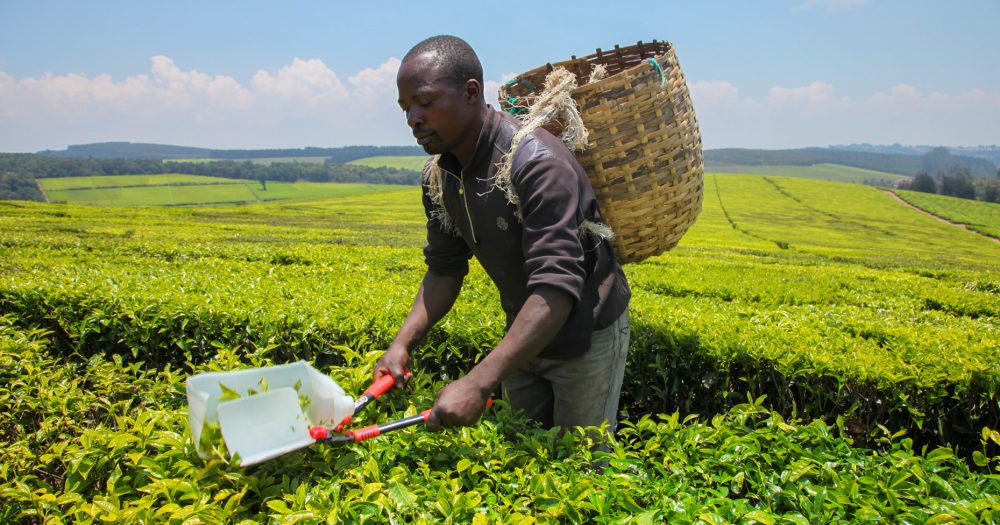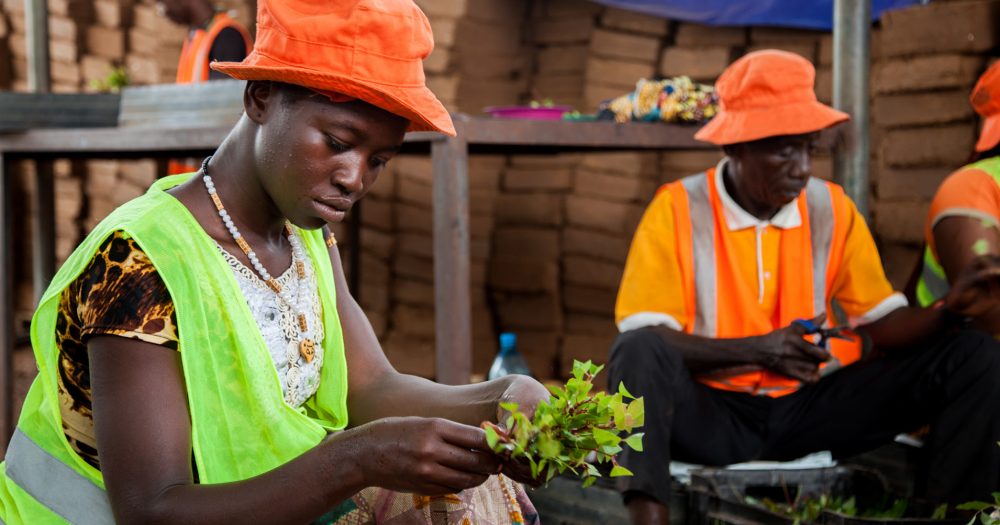Our investment
Description of the investment.
Description of the investment.
The syndicated loan facility was led by FMO and includes other DFIs and impact investors such as DEG, Finnfund, Norfund and Blue Orchard Microfinance Fund. The tier II facility enables Access Bank to raise long-term capital, which is difficult to attract in the commercial market amid the country's recent recession and elections.
Impact information
Applies to investments made from 2019 onwards. The tabs in this section define what we expect to achieve through the investment, assessing the potential impact of the investment against six dimensions of impact. You can find more details on our methodology of assessing impact here.
Applies to investments made from 2019 onwards. The tabs in this section define what we expect to achieve through the investment, assessing the potential impact of the investment against six dimensions of impact. You can find more details on our methodology of assessing impact here.
What?
| Impact |
|---|
|
|
|
How?
| How? |
|---|
|
Who?
| Stakeholder | Geography | Characteristics |
|---|---|---|
| We have no visibility on ultimate stakeholders. They will likely include employees of importers and exporters who will benefit in terms of their job/livelihood preservation, as well as consumers who will benefit from improved access to goods from the increased trade flows. |
This trade loan will be used in DRC, Zambia, Mozambique, Sierra Leone and Rwanda. |
There is no visibility on the characteristics of people reached. Employees will be workers of importers and exporters. The largest borrowing sectors in the pipeline of the subsidiaries in target markets include construction, manufacturing, fast moving consumer goods, beverage production amongst others. |
How much?
| Scale | Depth/Duration |
|---|---|
|
We use trade volumes enabled as a proxy for scale. We anticipate that our $60 million trade loan will lead to increased trade volumes of approximately $90 million. |
|
Contribution/additionality
| Contribution/additionality |
|---|
|
Risk
Execution RiskThis relates to the bank's ability to originate and effectively underwrite trades in 'Alpha countries'. However, we explored each subsidiary’s pipeline of trade loans and capabilities during due diligence and are confident that there is sufficient demand. Evidence RiskWe have limited visibility on the ultimate impact on employees and consumers given the intermediated nature of the facility. This is mitigated by monitoring data on underlying trades, country, sector and size of enterprise. |
Impact score
|
Impact score (at point of investment)
The Impact Score is a tool to help us manage our performance against our strategic impact objectives. It is designed to incentivise investments that support our productive, sustainable, and inclusive objectives. You can find out more here. The Impact Score is published for investments made from 2022 onwards. The Impact Scores are calculated at the point of investment. We publish the Impact Scores of new investments annually, once the information has been externally assured by an independent third party. |
|---|
8 |
Environmental and social information
-
Environmental and social summary
A high-level description of the environmental and social aspects of the investment. This may include a summary of key environmental and social risks identified during environmental and social due diligence (ESDD); key elements of an environmental and social action plan (ESAP); or ways in which we plan to support the investee improve environmental and social standards, such as through their environmental and social management system (ESMS); as well as any other priority areas agreed with the investee.
-
Environmental and social risk
A risk category rating, which indicates the level of environmental and social risk associated with an investment. For an explanation of the categorisations used, see here. We consistently provide an environmental and social risk category for all investments screened from 2023 onwards.
Environmental and social summary
BII will support Access Bank to further strengthen its ESMS and human resources policies and procedures.
Reporting and Complaints Mechanism
The Reporting and Complaints Mechanism allows anyone outside BII to report alleged breaches of the business integrity or environmental and social provisions of BII’s Policy on Responsible Investing. This includes breaches made by BII, a BII investee, or a portfolio company of a fund in which BII has invested. The Reporting and Complaints Mechanism Rules are available here. Reports and complaints can be submitted by email to reportsandcomplaints@bii.co.uk or by mail. See more details on our Reporting and Complaints Mechanism here.
For any other general enquiries contact us at enquiries@bii.co.uk
-
Key facts
- First published
:
When the investment was first published on the website database.
- October 2023
- Last updated
:
When the last quarterly update of the website database occurred.
- March 2025
- Project number
:
An identifier number shared by investments in the same project.
- D5714
- Status
:
The current status of the investment (green flag for active and red flag for exited).
- Active
- Region
:
The geographical region where the country is located. We currently invest in Africa, South Asia, South East Asia and the Caribbean. In 2023, BII’s investment mandate was extended allowing it to invest in regional funds linked to Ukraine, with the majority of activity expected to begin post-war. Investments outside these regions were made prior to 2012 under previous investment mandates.
- West Africa
- Country
:
The countries where the investment delivers impact. Where impact is delivered in multiple countries, this is indicated.
- Democratic Republic of Congo, Mozambique, Rwanda, Sierra Leone, Zambia
- Sector
:
We prioritise those sectors that facilitate development and need our capital the most. Our priority sectors contribute towards many of the Sustainable Development Goals. They range from investing in the power infrastructure that will provide people with better access to electricity, to investing in financial institutions that direct capital to the individuals and businesses that need it the most.
- Financial services
- Sub sector
:
The sub-sector that the investment is made into; this provides a more granular level of detail than the ‘sector’ information
- Banks
- Investment type :
- Debt
- Start date :
- May 2023
- Amount :
- $60m
- Currency of investment :
- USD
- Domicile
:
The company or investment fund’s place of incorporation.
- Nigeria
We provide capital in the following ways: directly – through direct equity, direct debt, guarantees and other non-intermediated financial instruments; and indirectly – principally through investment funds.
For direct investments and fund investments, this is the date BII committed capital to the investments. This is typically the date on which legal agreements are signed by all parties.
For the portfolio companies of our fund investments, this is the date (either the month or the quarter) on which the fund committed capital to the portfolio company.
For direct equity investments, this is the date at which British International Investment exited the investment.
For debt investments, this is the date at which the final debt repayment was made.
For funds, this is the date at which the fund was terminated.
For underlying fund investments, this is the date at which the fund manager exited the investment.
The total amount committed, per financial instrument, per investment, on the date BII becomes subject to a binding legal obligation to provide funding or assume a contingent liability. This information is provided in US dollars.
For direct investments, this is the amount that BII has committed to the business or project. For fund investments, this is the amount BII has committed to the fund.
The currency in which the investment was made.
- 2X Gender Finance
:
Indicates whether the investment is ‘2X qualified’ using the 2X Challenge criteria. You can find out more here. It only applies to investments made from 2018 onwards, when the 2X Challenge was first launched.
- Partially qualified
- First published
Related investments made by BII into this company:
| Investment name | Commitment | Region | Sector | Start date | Status |
|---|---|---|---|---|---|
| Investment 01 | $25m | West Africa | Financial services | January 2019 | Exited |
| Investment 03 | $50m | West AfricaWest Africa | Financial services | July 2024 | Active |


